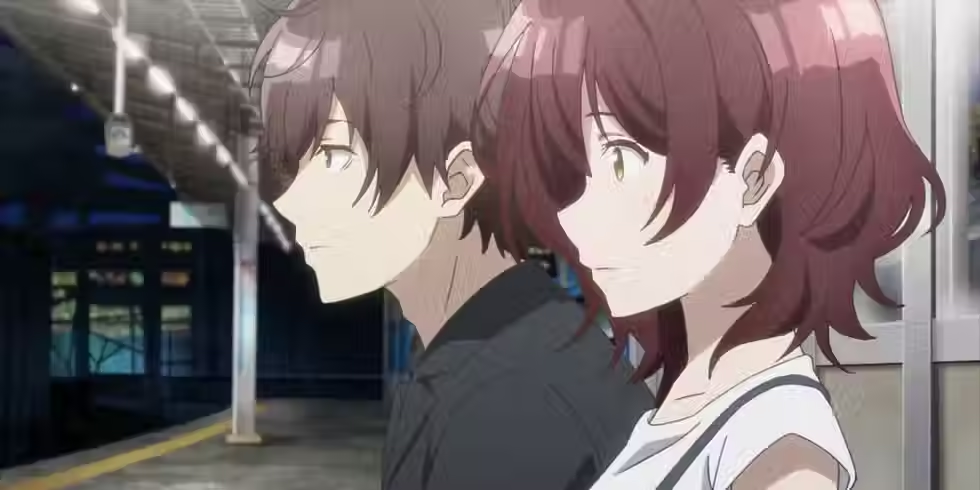Fruits Basket Review: Where Connection Breaks Curses
- The Weebersons

- Jul 17, 2025
- 4 min read
Updated: Aug 15, 2025

Plot Summary
Fruits Basket (Furūtsu Basuketto) follows Tohru Honda, a gentle and selfless high school girl who, after losing her mother, finds herself living in a tent—until she’s taken in by the mysterious Soma family. But the Somas are no ordinary household: certain members are cursed to transform into animals of the Chinese zodiac when hugged by someone of the opposite sex. What begins as a light, slightly odd domestic comedy slowly unfolds into a deep exploration of trauma, connection, and the courage it takes to change.
Themes and Genre
When I watched the first few episodes of Fruits Basket, I thought it was funny and a bit silly. “Will it get deeper?” I wondered. Well, it did. But it also got weirder. Supernatural elements aside, the relationship dynamics in this show can be a bit outside of the ordinary. Some of that highlights real goodness, and some reveals the worst side of familial relationships. In that way, it reminded me of March Comes In Like a Lion—not in plot, but in the way it dives beneath the surface of what people show the world, exposing pain and revealing unexpected strength.
At its heart, Fruits Basket is a character-driven drama about generational pain and emotional renewal. While it begins with rom-com energy and school-life antics, it matures into something far more sobering and redemptive. Themes include:
Breaking generational cycles: Both Tohru and the Somas come from broken families. The Soma clan, in particular, functions almost like a mafia: driven by loyalty, fear, and manipulation. Yet slowly, we witness a shift—through Tohru’s presence and each character’s growth—as they begin to challenge what they were told was “love.”
Self-sacrifice vs. self-worth: Tohru is endlessly kind, but Fruits Basket doesn’t shy away from showing the shadow side of that kindness. Her aversion to speaking up for her own needs, especially early on, highlights the confusion between true selflessness and a fear of being “selfish.”
Uncovering hidden strength: Like Bottom-Tier Character Tomozaki, this story challenges surface impressions. Seemingly cold or hostile characters reveal tenderness; comedic side characters turn out to be pivotal anchors. Even villains are given complexity, if not excuses.
For more anime that explore the complexity of relationships with nuance and emotional weight, this guide to romance anime unpacks how love stories can help us reflect on empathy, trust, and connection.
Who Should Watch This
Viewers drawn to slow-building emotional arcs, character rehabilitation, and chosen family themes will likely find Fruits Basket rewarding. It deals with heavy emotional content, but the tone remains hopeful. However, a few caveats may matter for value-sensitive audiences:
Violence as humor: Characters like Kagura physically attack others in exaggerated, slapstick fashion—especially Kyo. The story frames her as obsessively “in love,” and Tohru even expresses admiration for Kagura’s intensity, which may feel unsettling despite later character growth.
Cross-dressing played for fanservice: A few early scenes—especially during the school culture festival—rely on boys dressing as girls for laughs. It’s acknowledged as fanservice, and while not mean-spirited, it adds nothing of real value and leans into uncomfortable tropes.
Ambiguity around adult characters’ motives: Shigure’s role is especially complex. He appears protective of Tohru, but quietly manipulates events to fulfill a long-held personal goal. Hatori seems more stable and caring, but he does little to stop Shigure’s schemes.
That said, there’s a lot to appreciate in the characters who do take real responsibility—like Kyo and Yuki, who rise above their dysfunction to protect and care for Tohru in concrete ways. And Tohru’s quirky school friends, who’ve stood by her since her mother died, add an unexpected layer of grounding and joy.
Final Verdict
Fruits Basket is one of those rare series that grows with its characters. It begins with quirky warmth, but what lingers is the raw, sometimes painful honesty of how it portrays generational wounds—and the painstaking process of healing. Some story choices may prompt concern (especially early on), but for viewers looking for anime that honors the inner life, this show offers a lot to wrestle with and ultimately, a lot to admire.
Pros:
Deep, compassionate character arcs
Excellent balance of humor and heartbreak
Strong message of hope and emotional resilience
Cons:
Some early fanservice and violence-as-comedy may distract
Mixed messages around self-sacrifice
Complex, morally gray adults may leave some questions unresolved
Our Rating:

Similar Shows on The Weebsite
If you appreciated the emotional layers of Fruits Basket, consider these titles we've reviewed:
Bottom-Tier Character Tomozaki – for growth through relationship and emotional honesty
March Comes in Like a Lion – for trauma, healing, and chosen family
I Want to Eat Your Pancreas – for a poignant look at how brief but genuine connection can change the course of a life
A Silent Voice – for learning to make peace with oneself and others
When Marnie Was There – for layered emotional introspection
FAQs
Is Fruits Basket family-friendly?
Mostly. While there is no explicit content, some moments involve emotional abuse, mild romantic fanservice, and heavy psychological themes. The tone is thoughtful and redemptive overall, but best suited for teens and adults.
Does Fruits Basket have romance?
Yes, but it’s slow-burning and entwined with emotional healing. Romance is present, but not the focus—connection and trust come first.
Is the story complete?
Yes. The 2019–2021 adaptation covers the full manga arc and includes a follow-up movie about the next generation.
Is the show sad?
Yes, in parts—but ultimately, it’s a story about hope. The characters endure a lot, but the emotional payoff is worth it.





Comments